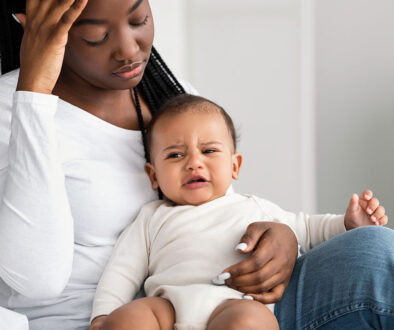How Long Does Postpartum Depression Last?
It’s much more than the “baby blues.”
The term “baby blues” doesn’t convey the extreme anxiety, crying spells, mood swings and severe depression that can occur after giving birth. These are symptoms of postpartum depression. The signs of postpartum depression can begin within two to three days after you’ve given birth.
But how long does postpartum depression last? While mild cases can last for two weeks, many cases of postpartum depression can last for months. That’s why it’s so important to schedule an appointment with our gynecologists in Raleigh if you’re experiencing any of the signs of serious depression.
Below, we’ll examine postpartum depression, provide more details on how long does postpartum depression last, and examine some effective treatments.
How Long Does Postpartum Depression Last?
As we mentioned earlier, postpartum depression can last for months. However, if it is not treated, it can actually last for years. Most cases may resolve within three to six months, but more research is needed to fully understand the subtleties of how long does postpartum depression last.
What Are the Signs of Postpartum Depression?
While everyone has periods of depression or times when they are feeling “down,” the symptoms of postpartum depression are much more intense. In fact, they make it difficult to accomplish everyday tasks. When this pattern continues for two weeks or more, or becomes difficult to manage at any time, you should consider that you might have postpartum depression.
Symptoms of postpartum depression include:
- Feelings of worthlessness or guilt
- Loss of interest in things you once enjoyed doing
- Extreme worry
- Loss of appetite (or eating too much)
- Changes in sleep patterns—either insomnia or sleeping too much
- Difficulty concentrating
- Lack of interest in your baby
- Frequent crying (often for no reason)
If you are having suicidal thoughts or considering hurting yourself or others, dial 911 or report to the nearest emergency room.
What Causes Postpartum Depression?
Research is still ongoing to the exact cause of postpartum depression. However, the following are factors:
- Change in hormone levels during pregnancy and after giving birth
- Social and psychological changes and stress associated with having a newborn
- Having a family history of clinical depression
- Lack of a social support system
- Conflicts in relationships
- Pregnancy complications
- Having a baby with special needs
- Having a baby who cries often
Postpartum Depression Is Not a Weakness
Postpartum depression is more common than you may think. It affects around 15 percent of all mothers.
It’s not a character problem.
It’s not a weakness.
It doesn’t mean that you’re a bad mother.
Many women think they should be able to “tough it out” and fix the situation on their own. But we want you to know that you should not tackle this alone. We have helped hundreds of women successfully overcome postpartum depression through medication and other treatments.
Each case of postpartum depression is different, and our approach will be tailored to your individual situation.
There’s no reason to be ashamed. Remember: We’re always here to help you.
Associates in Women’s Healthcare Helps Raleigh Residents Take Control of Their Health
For decades, we have been women serving patients throughout the Triangle area. We concentrate on treating the whole person—not just your gynecological care. We also want to help you with health issues such as high cholesterol, diabetes and high blood pressure. Through early intervention, we can either prevent these conditions or keep them from getting worse.
Interested in learning more? Experience our compassionate care firsthand by scheduling an appointment today.





